In the small town of Kyoto in the early 1990s, 11-year-old Ren finds her happy family life turned upside down. Her parents, Kenichi and Nazuna, who she thought loved each other, are splitting up. Through the eyes of Ren, we see the emotional turmoil of her parents’ divorce in director Shinji Somai’s touching film “Moving.”
Little did audiences know in 1993 that Somai’s sensitive depiction of divorce would prove ahead of its time. In Japan at that moment, separating was just becoming an acceptable choice for unfulfilled couples seeking personal freedom. However, the film reveals divorce remains an immensely painful experience, especially for children caught in the middle.
As a newcomer to the problem himself, Somai turns to Ren for understanding. Through her eyes, we feel the confusion and longing for everything to go back to how it was. We also notice, via vivid shots of Ren’s energetic movements and expressive face, the bravery and resilience of a child thrust into adult dilemmas. Bringing us deeply into Ren’s world is young actress Tomoko Tabata, who delivers a nuanced and captivating leading performance.
Through Ren’s story, Somai presents a moving examination of how separation affects all involved. Two decades later, his compassionate realism still resonates thanks to the film’s atmospheric photography and touching central character.
A Daughter’s Struggle
Young Ren finds herself in an impossible situation as her parents, Kenichi and Nazuna, decide to separate. At first, Ren tries to pretend like nothing has changed after Kenichi moves out. But it’s not long before her cheerful facade starts to crack under the strain.
As the new arrangements take shape, Ren struggles to accept her changing family dynamic. She’s forced to split her time between her parents, leaving her feeling disconnected from both. Nazuna, meanwhile, juggles single motherhood with her new job, leaving little time for her daughter. Kindhearted but aimless, Kenichi also struggles without his central role in the family.
Caught in the crossfire of her parents’ sadness and confusion, Ren acts out in frustration. She lashes out at school and refuses to cooperate with her mother’s new rules. Most of all, Ren refuses to give up hope that her father and mother might reunite. In a desperate bid, she even tries tricking them into a family vacation, hoping time together may rekindle their bond.
Throughout it all, plucky and energetic Ren tries her best to keep smiling through the turmoil raging within. But as the separation drags on, her anguish grows more apparent. In moments of quiet reflection, she questions why this is happening and what future she has without her family intact. All Ren wants is the security and stability that were so suddenly taken from her young life.
Somai’s sensitive portrayal highlights how even a resilient child like Ren struggles under the weight of her parents’ divorce. Through it all, he captures the confused mix of emotions that turns her world upside down during this difficult transitional period.
Capturing Emotion Through Style
Shinji Somai brings a vivid visual approach to Moving that enhances the film well beyond standard direction. While contemporaries like Ozu relied on stationary shots, Somai opts for long, flowing takes with mobile camerawork. This creates a sense of constant motion reflecting the turbulent circumstances.
Throughout, tensions within the family are communicated throughangled, purposeful compositions. The opening dinner scene says it all, with Ren squeezed into a triangular table, cutting the family off. Later shots follow Ren’s dashes, allowing viewers to feel her confusion and desperation.
When festivals arrive, Somai’s cinematography becomes truly impactful. Scenes during the Gion and Fire celebrations use light and color spectacularly. Flaming boats float down rivers engulfed in an orange glow, almost carrying Ren away in her emotional current. Her wanderings among the bonfires seem to transport the viewer as much as the character.
It’s a stark contrast to Ozu’s minimalism yet no less effective. While Ozu provides stillness, Somai’s vivid restlessness perfectly mirrors Ren’s turmoil. His dynamic camera embraces the energy of a young girl in crisis rather than constraining it. Scenes flow like Ren’s thoughts, and long takes sensitize viewers to her unstable world.
Through thoughtful direction, Somai ensures every frame resonates with Ren’s anguish. It’s a tour de force showing how explicit visual storytelling can communicate silent, inner struggles that words cannot. For this reason, Moving transcends its realist roots into something truly magical.
The Stirring Soul of a Troubled Girl
What an incredible performance by young Tomoko Tabata. Playing divorce-torn Ren with such depth and vibrancy, it’s no surprise some call it the best of its kind. As soon as she lights up the screen, it’s clear there’s a star in the making.
Through her emotive eyes, we feel Ren’s spirited personality and thirst for life. Tabata breathes endless energy into each scene, from chasing friends to correcting her parents’ manners. Yet she also shows the pain just below the surface, teary looks revealing anguish no child should bear. Even a sideways glance speaks volumes of Ren’s effort to be strong despite her world crumbling.
Most astounding is how Tabata depicts Ren’s shifting inner landscape. As turmoil overwhelms the playful girl’s cheerful front, subtle cracks in her facade unfold in complex, heart-wrenching ways. We fully believe Ren’s journey from glee to torment through Tabata’s nuanced, compassionate portrayal. Most child actors merely scratch a character’s surface—Tabata inhabits Ren’s very soul.
Watching Ren push through her struggles with Tabata at the helm is profoundly moving. Never have I witnessed such mastery from one so young. When she gazes mournfully at cherished memories fading, her young eyes lay bare tragic wisdom way beyond Tabata’s years. It’s a defining performance that will captivate for generations to come. Simply put, in Tabata’s capable hands, Ren resonates as one of cinema’s most stirring young souls.
Navigating Life’s Hard Turns
Moving offers stark yet nuanced insights into divorce’s painful impacts. Somai guides us deftly through this tumultuous period in young Ren’s life.
We feel her desperation to mend the rupture tearing her family apart. But through her eyes, we see parents struggling in this new normal too. Somai doesn’t shy away from their weaknesses—repetitive quarrels hurt Ren while unstable finances strain new roles. It’s clear divorce destabilizes all.
What’s striking is Somai’s unvarnished view. He acknowledges divorce’s messiness rather than smoothing over hard truths. Ren suffers classmates’ taunts while her mother’s drunken incident embarrasses the private girl. Somai spots life’s difficulties without judgment, keen to capture divorce’s gritty, unglamorous realities for his heartbroken heroine.
Yet Moving also shines light on changing social tides. Through Ren’s confusion at shifting relationships, we glimpse loosening family bonds as individualism grew. Once taboo, divorce now stems from personal desires—a seismic shift Somai depicts with subtle understanding.
His film struck a chord by honoring divorce’s complex norms and emotions. Even festivals, so confusing for Ren, portrayed spiritual solace within cultural tradition. In Somai’s hands, Moving navigated wrenching personal waters and evolving cultural crosscurrents with equal care and insight. His eye for life’s intricacies, good and bad, makes this exploration resonate two decades on.
Ambitions and Missteps in Moving’s Climax
Somai took a risk with Moving’s climax that didn’t entirely pay off. the surreal festival scenes losing the film’s grip on its protagonists’ emotional arcs. It’s a bold swing that doesn’t land cleanly.
Up till then, Somai immersed us expertly in Ren’s turmoil. He located heartache in daily moments—a tense family dinner, classmates’ cruelty. We felt her pain at the sudden break in her young world.
So delving into dreamlike surrealism, with Ren wandering fires and forests alone, feels jarring against the grounded drama. It veers from her confused perspective into flights of symbolism not fully clear. While beautiful visually, the meaning grows opaque where clarity was crucial.
Yet Somai’s impulses were admirable—reflecting Ren’s own descent into an unsteady haze. His film had courageously tackled divorce’s messy realities, extending that into spiritual questioning of what family truly means isn’t wrong in intent.
The misstep shows Somai’s adventurous side. Moving gave an authentic child’s-eye view of rupture; breaking conventions was a risk when resolution mattered most. It hints at an artist ahead of his time, perhaps too experimental for some audiences even today.
Somai’s climactic ambitions exceeded execution but still revealed a love of cinematic storytelling’s bounds. Moving stays resonant for honoring life’s complexity, even when not all its pieces perfectly fit.
Enduring Impact of Moving
Somai’s film sticks with you long after viewing. Moving tells an impactful story with sensitivity and nuance.
At its heart is Ren, brought to life vibrantly by Tabata. Her spirited performances carry us through Ren’s turmoil. We feel the confusion and loneliness of a family breaking apart through a child’s eyes.
Around her, Somai draws layered portrayals of parents coping in different flawed ways. Their divorce impacts Ren profoundly yet feels grounded in recognizable emotions. Without taking sides, Somai honors life’s complexity in times of upheaval.
With techniques like fluid camerawork and evocative festival scenes, Somai envelops us in Ren’s world. His visuals stimulate just as his characterizations move us. Even small moments resonate, from a tense family dinner to classmates’ casual cruelty.
Though released decades ago, Moving doesn’t feel dated. Its divorce depiction and coming-of-age themes feel touching and thought-provoking as ever. It’s easy to see why critics and directors still admire Somai’s understated yet profound filmmaking.
This is a melodrama with depth. Moving deserves recognition as one of Japanese cinema’s hidden treasures, a subtle drama that has lost none of its ability to captivate and quietly stay with us.
The Review
Moving (1993)
Shinji Somai's Moving is a quietly impactful piece of filmmaking that has lost none of its resonance. With natural and layered performances, sensitive direction, and a grounded depiction of divorce's effects on a young life, it proves a deeply moving family drama. Somai crafted a subtle gem that deserves rediscovery.
PROS
- Nuanced and realistic portrayal of divorce's emotional toll
- Sensitive direction and cinematography that immerse the viewer
- Standout lead performance from Tomoko Tabata
- Thoughtful exploration of themes like family and children coping with change
CONS
- Surreal climax feels tonally disjointed from the grounded drama.
- Western audiences may find some cultural references obscure.
- Aged somewhat but still holds up well overall.
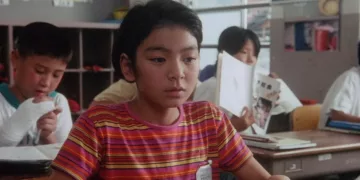








































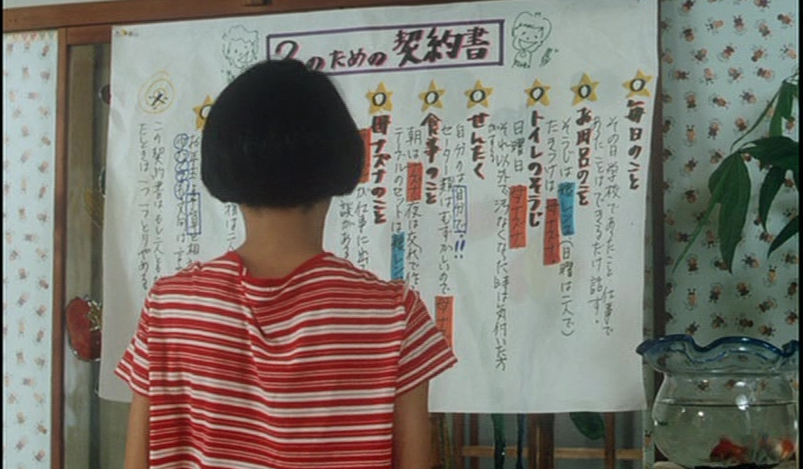
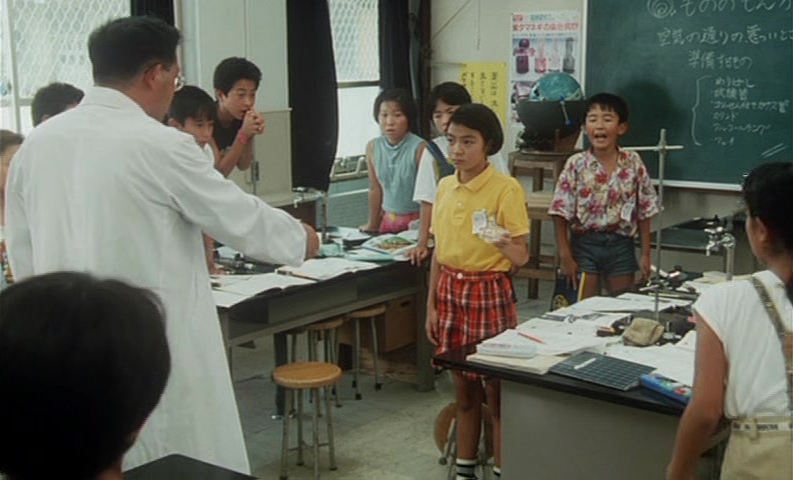
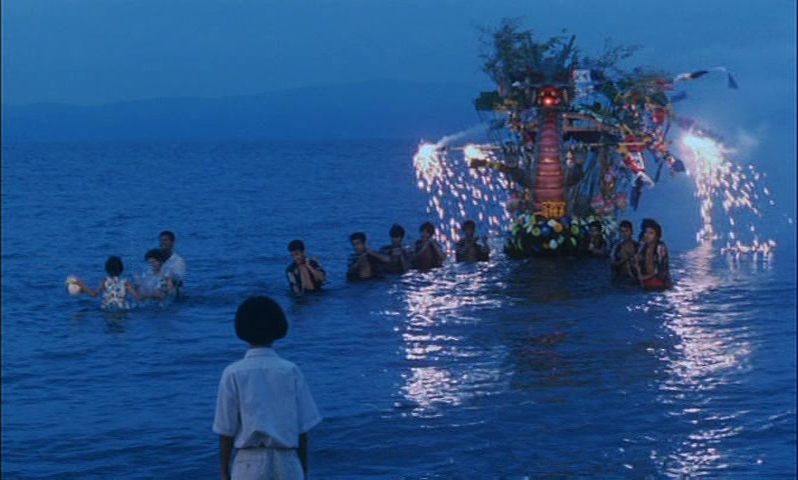
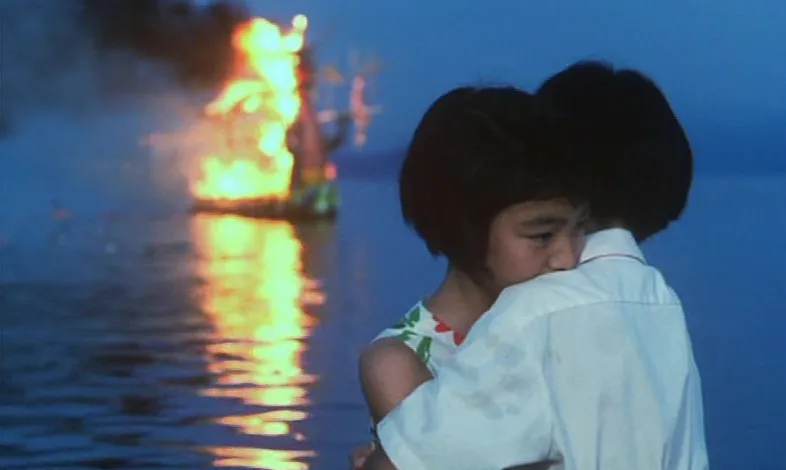
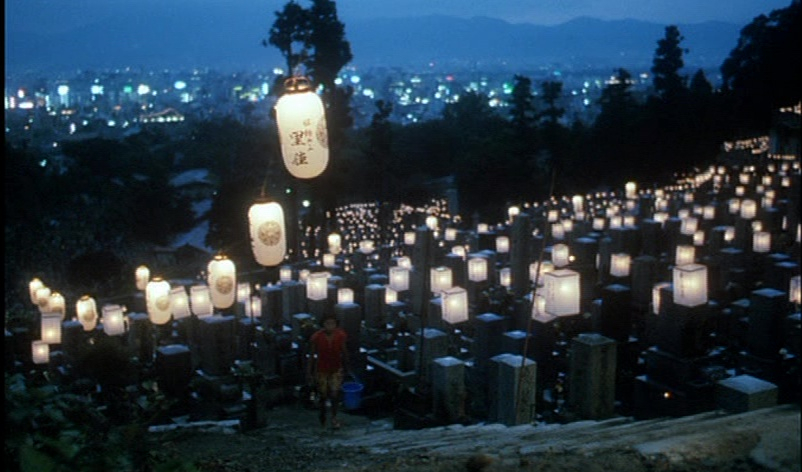








Discussion about this post